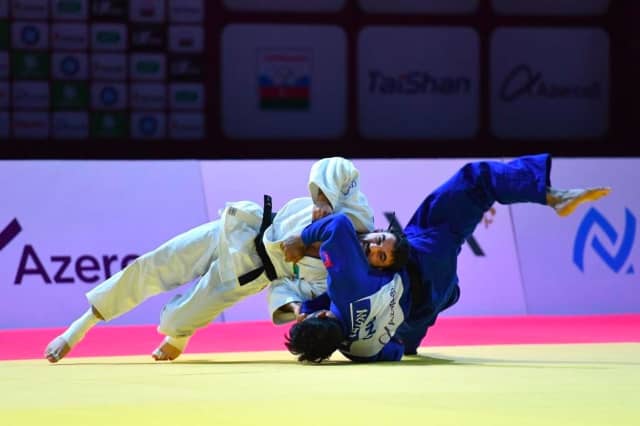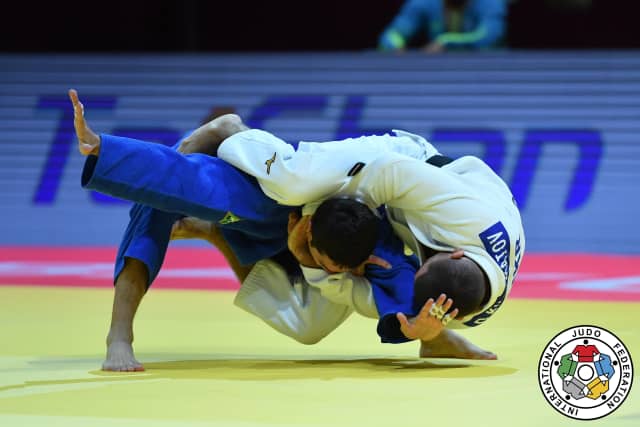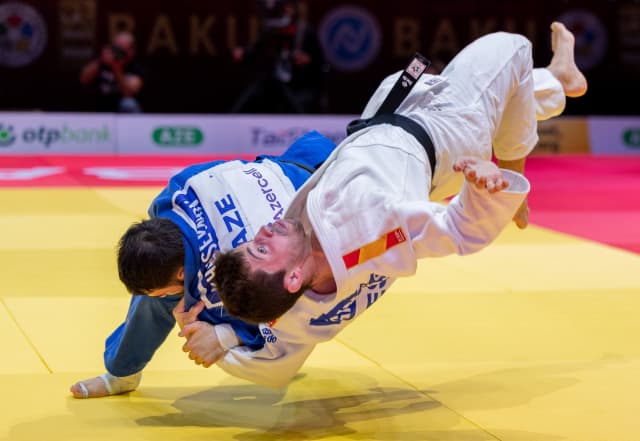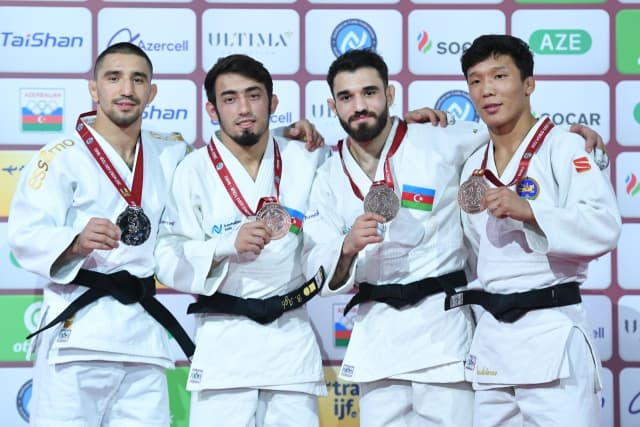The all-Azeri semi-final was strange because it was loud, really loud. We could have imagined a quiet crowd or one just applauding the home boys together, as the nation’s representatives but it was clear that the room was divided and encouragement, engagement and support was split equally between them. It was like watching cats play, clawing at one another and then tumbling like acrobats from one attack to the next, without pause or break. This is not to say that they were playing but that they gave everything and brought their best judo.
At 2:38 into golden score Huseynov attacked and Aghayev countered, originally for a waza-ari but on review it was waved off and the duel continued. At 5:30 into golden and with no let-up in pace or intensity Huseynov attacked but threw across his opponent’s straight arm. It was clear but also unfortunate as an exceptional fight came to an end in a way neither would have liked. Aghayev, seeded 3 moved into the final and Huseynov, seeded 2, moved into the bronze medal match to face number 1 seed Garrigos (ESP).
Huseynov should have had an easy day, on paper. As the number 2 on the sheet he had a bye and then fought an almost unranked Indian, Yadav. However, Yadav made him work for the win allowing only a waza-ari to decorate the scoreboard. Yadav is fast and unrelenting and it was a relief for the home fighter to take the victory. Then he had Baratov, just back from a 5th place outing at the worlds, a judoka who is worth watching, not just one day at a time but for his overall trajectory. Baratov lost the strategic play and went out completely after losing again in the repechage final.
We haven’t covered the other half of the draw yet. Khalmatov (UKR) beat the number 1 seed. Nurillaev (UZB) beat the number 4 seed and so the semi-final took place with the blue and yellow of Ukraine taking the step forward to reach his first grand slam final.
In the first bronze medal match Huseynov, having had a great day, had to face the gnarly experience of Garrigos (ESP) and no-one looks forward to that kind of grind, but the home athlete took it in his stride and threw for ippon in the first minute. It was an outstanding moment for both him and the crowd, with their first medal and their first chance to see their flag in the awarding ceremony.
The second bronze saw Tsogt-Ochir (MGL) take on Nurillaev (UZB). The Mongolian, in white, created an opening to score early but didn’t rest on his waza-ari. The pace dropped a little but just enough to push the Uzbek to force the gripping exchanges. He did but the Mongolian shut him down. Eventually Nurillaev opened up and attacked but not with the best form and his opponent scrambled to pick him up. A second waza-ari confirmed a reward in a shade of bronze for a clever approach to a challenging match. Tsogt-Ochir now has a second grand slam medal.
The final had plenty of movement but with nothing convincing. The Ukrainian has no reference on the WJT except for a 7th place in the most recent Abu Dhabi Grand Slam. He tried but to overcome Aghayev and his supporters was too much and the home judoka gave the crowd what they wanted, throwing for waza-ari and ensuring the national anthem of Azerbaijan would be heard today.
Having hedged their bets, Azerbaijan walked away with a gold, a bronze and a 7th place at -60kg. Not bad, not bad at all.








